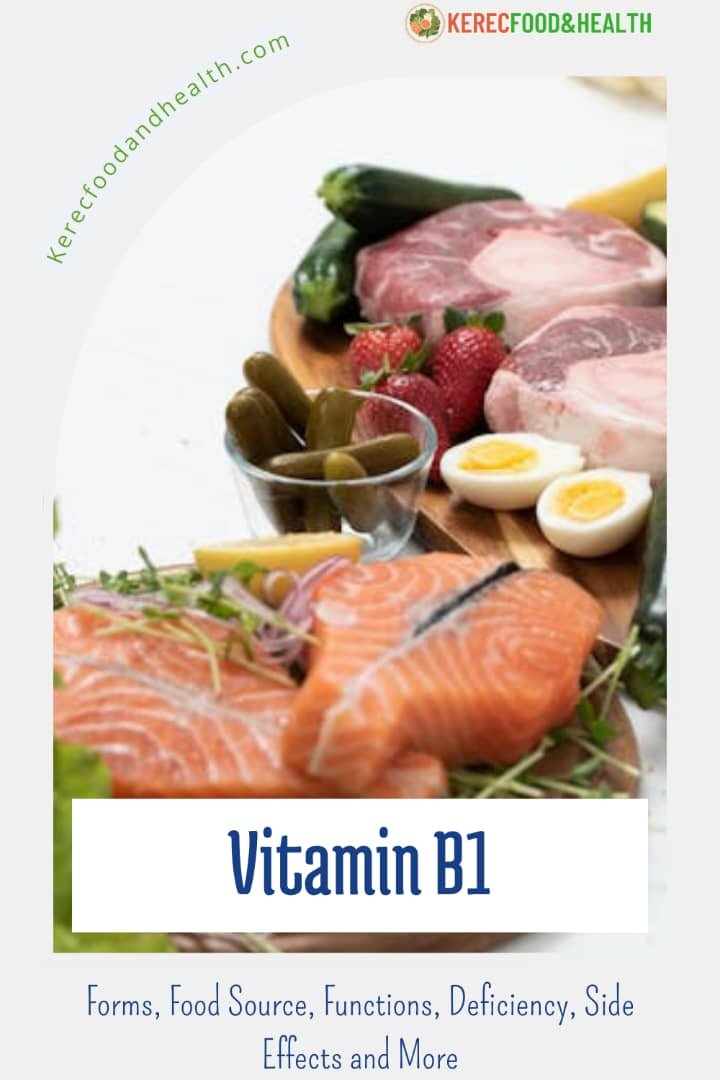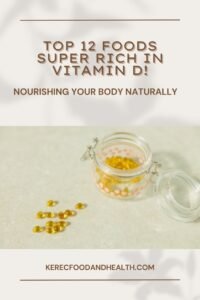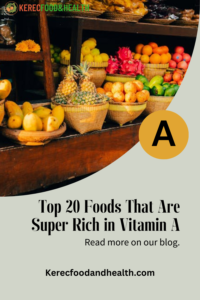Vitamin B1
Vitamin B1, or thiamine, is a powerhouse nutrient that often goes unnoticed yet plays a critical role in keeping us energized and focused. As one of the eight essential B vitamins, thiamine is crucial for converting carbohydrates into energy, supporting the nervous system, and promoting heart health. From whole grains to lean meats, many foods offer a solid source of vitamin B1. However, due to various lifestyle factors, some people may fall short of this vital nutrient, leading to symptoms of deficiency.
In this post, we’ll explore everything you need to know about vitamin B1, including its different forms, the foods that supply it, and the many ways it benefits our health. We’ll also dive into the signs of deficiency, how to prevent it, and potential side effects of excessive intake. Whether you’re looking to boost your energy, support your nerves, or simply understand this essential vitamin, you’ll find valuable insights to enhance your well-being. Let’s get started!
What is Vitamin B1?
Vitamin B1, also known as thiamine, is a water-soluble vitamin that plays a crucial role in maintaining your overall health. First identified in the early 1900s, this essential nutrient is part of the B-complex vitamins, which contribute to various bodily functions.
Forms of Vitamin B1
Vitamin B1, or thiamine, comes in several forms that vary based on their chemical structure, stability, and effectiveness in the body. Here are the main types:
1. Thiamine Hydrochloride
This is the most common and basic form of vitamin B1. It’s typically used in supplements and fortified foods and is water-soluble, making it easy for the body to absorb.
2. Thiamine Mononitrate
This form is commonly used in fortified foods and supplements as well. Thiamine mononitrate is more stable than thiamine hydrochloride, as it resists moisture, making it suitable for use in processed and fortified foods like cereals and breads.
3. Benfotiamine
Benfotiamine is a fat-soluble, synthetic derivative of thiamine that is more bioavailable than standard thiamine. Because of its fat solubility, it stays in the body longer, making it effective for certain therapeutic uses, especially in nerve health and diabetic complications.
4. Thiamine Pyrophosphate (TPP) or Thiamine Diphosphate (TDP)
Also called Thiamine Diphosphate (TDP), this is the active coenzyme form of thiamine in the body. It’s critical for cellular energy production and is mainly formed in the body from other thiamine sources.
5. Sulbutiamine
Sulbutiamine is a synthetic form of thiamine that crosses the blood-brain barrier more effectively. It’s used to address fatigue and support cognitive function, it is also used in supplements for mental focus, energy, and to support overall brain health.
6. Fursultiamine
Developed in Japan, this thiamine derivative is often used for therapeutic purposes and has a high bioavailability. It was developed to address thiamine deficiencies and is sometimes used to support nerve function and fatigue relief.
Each form has its advantages, depending on the purpose. For general supplementation, thiamine hydrochloride and mononitrate are most common, while derivatives like benfotiamine and sulbutiamine are popular for targeted therapies, particularly in nerve health and metabolic conditions.
What Does Vitamin B1 Do?
First and foremost, thiamine is vital for converting carbohydrates into energy. Without sufficient vitamin B1, your body struggles to metabolize glucose, which could lead to fatigue. Moreover, thiamine supports proper nerve function. It helps produce neurotransmitters, the chemicals responsible for transmitting signals in the brain. A deficiency in vitamin B1 can lead to neurological issues, such as confusion or memory problems.
Who Needs Vitamin B1?
While most people can obtain enough thiamine through a balanced diet, certain populations may need additional intake. Those with conditions that affect absorption, such as Crohn’s disease or alcoholism, are at a higher risk for deficiency. Additionally, pregnant and breastfeeding women may require more thiamine to support their health and the development of their babies.
Top 30 Foods Source of Vitamin B1
Vitamin B1, also known as thiamine, is an essential nutrient that plays a vital role in maintaining our overall well-being. It is responsible for converting the food we eat into energy and helps in the proper functioning of our muscles, nerves, and heart. While a deficiency in Vitamin B1 can lead to serious health problems, including nerve damage and muscle weakness. Our bodies require thiamine to break down carbohydrates and convert them into energy, which fuels muscles, nerves, and other systems. Without enough vitamin B1, you might feel fatigued, have difficulty focusing, or even experience muscle weakness. Incorporating foods that are rich in this nutrient can help ensure we meet our daily recommended intake. Let’s discuss the top 30 foods that are excellent sources of Vitamin B1.
1. Whole grains
Whole grain products like oatmeal, brown rice, and whole wheat bread are excellent sources of Vitamin B1. They also provide fiber, minerals, and other B vitamins.
2. Beef
A serving of lean beef can provide more than half of the recommended daily intake of Vitamin B1. It is also a good source of protein and iron.
3. Pork
Pork is one of the best sources of thiamine, especially cuts like lean pork chops. It is also a good source of zinc and selenium. A small portion provides nearly half of the recommended daily intake. Including pork in your diet a few times a week can significantly boost your B1 levels.
4. Legumes
Beans, lentils, and peas are not only excellent sources of protein and fiber, but they are also rich in Vitamin B1.
5. Nuts
Nuts like almonds, cashews, and peanuts are not only tasty but also provide a good amount of Vitamin B1.
6. Seeds
Sunflower seeds, flaxseeds, and sesame seeds are tiny powerhouses of nutrition, providing both omega-3 fatty acids and vitamin B1. Just a handful sunflower seeds can provide about 35% of your daily recommended intake. Sprinkling them on oatmeal, smoothies, or salads is an easy way to up your thiamine intake.
7. Eggs
Eggs are one of the most versatile and nutrient-dense foods, containing B1 along with protein and other essential vitamins and minerals. Try them boiled, scrambled, or as part of an omelet.
8. Milk
Dairy products like milk are not only rich in calcium but also contain a good amount of Vitamin B1.
9. Fortified cereals
Breakfast cereals that are fortified with vitamins and minerals are a good way to meet your daily recommended intake of thiamine.
10. Oysters
Seafood, especially oysters, is a good source of Vitamin B1 and other important minerals like zinc and selenium.
11. Squash
Squash such as acorn and butternut are a seasonal vegetables rich in thiamine and other antioxidants, especially when roasted. It makes a hearty addition to salads, soups, or grain bowls.
12. Spinach
This leafy green is not only packed with nutrients but is also a good source of vitamin B1, making it a nutritional powerhouse. Add it to smoothies, salads, or sautés for an easy way to enjoy its benefits.
13. Asparagus
Asparagus is a versatile vegetable that is rich in many essential nutrients, including Vitamin B1. It’s delicious when roasted or steamed, adding both flavor and nutrients to any meal.
14. Brussels sprouts
These mini cabbages not only add a delicious crunch to meals but also provide a good amount of thiamine, and antioxidants. Roasted Brussels sprouts make a tasty, thiamine-rich side dish.
15. Oranges
Oranges are known for their vitamin C content, but they’re also a good source of vitamin B1. Having a glass of freshly squeezed orange juice or eating the whole fruit can give you a quick B1 boost.
16. Bananas
Bananas are an excellent source of potassium and also provide a significant amount of Vitamin B1.
17. Avocados
This creamy fruit is not only rich in healthy fats but also contains a good amount of thiamine.
18. Tomatoes
This versatile fruit (yes, it’s a fruit!) is not only packed with antioxidants but is also a good source of Vitamin B1.
19. Salmon
Salmon is not only a source of omega-3 fatty acids, but also contains decent amount of thiamine. Enjoy it grilled, baked, or pan-seared for a heart-healthy, thiamine-boosting meal.
20. Chicken
Lean chicken breast is not only a good source of protein but also contains Vitamin B1.
21. Yogurt
Yogurt is a great snack that provides vitamin B1 along with probiotics, which support gut health. Add some fruit for a wholesome, nutrient-packed snack.
22. Potatoes
Potatoes, especially when eaten with the skin, provide a healthy dose of vitamin B1. They’re versatile and can be roasted, baked, or mashed for an easy addition to any meal.
23. Cauliflower
Cauliflower is another great vegetable source of vitamin B1. Whether roasted, mashed, or in a stir-fry, it adds both taste and nutritional value to any meal.
24. Whole Wheat Bread
Whole wheat bread is a convenient source of vitamin B1, especially when fortified. Make your sandwiches with whole wheat to increase your thiamine intake.
25. Macadamia Nuts
Macadamia nuts are rich in healthy fats, and they also pack a decent amount of thiamine. Enjoy them as a snack or sprinkle them on salads for a crunchy texture.
26. Brown Rice
Brown rice is a whole grain that’s high in B vitamins, including B1. As a staple food, it’s versatile and complements many dishes, especially in Asian and Middle Eastern cuisine.
27. Lentils
Lentils are a budget-friendly, nutrient-dense option. They’re packed with thiamine, fiber, and protein, making them a great addition to soups, salads, or curries.
28. Oats
A warm bowl of oatmeal in the morning is not only comforting but also loaded with vitamin B1. Add some fruit and nuts for a well-rounded, energy-boosting breakfast.
29. Black Beans
Black beans offer a healthy dose of vitamin B1 along with fiber, which aids digestion. Add them to tacos, salads, or rice dishes for a nutrient-packed meal.
30. Green Peas
Green peas are not only high in vitamin B1 but are also packed with fiber and protein. They’re perfect as a side dish, in stews, or blended into soups.
Final Thoughts
Ensuring you get enough vitamin B1 in your diet doesn’t have to be difficult. These foods provide ample sources of thiamine and can be easily incorporated into your meals. From leafy greens to grains and nuts, there are many delicious ways to support your energy levels, metabolism, and nervous system. Remember to also diversify your diet and include a variety of fruits, vegetables, and whole grains to ensure you are getting all the essential nutrients your body needs. Try adding a few of these B1-rich foods to your weekly menu, and experience the benefits of a well-balanced diet!
Top 10 Functions of Vitamin B1 and Why to Include it in your Daily Diet
Vitamin B1, also known as Thiamine, is an essential nutrient that plays a crucial role in maintaining overall health and well-being. As part of the B-vitamin complex, it is responsible for numerous functions in the body, from converting food into energy to supporting nerve and brain function.
1. Energy Production
The primary function of Vitamin B1 is to convert nutrients from the foods we eat into energy. It helps in the breakdown of carbohydrates and fats, which are then used by the body for energy production.
2. Nerve Function
Vitamin B1 is vital for the proper functioning of the nervous system. It helps in the production of neurotransmitters, which are essential for transmitting signals between nerve cells.
3. Brain Health
Along with promoting nerve function, Vitamin B1 also aids in maintaining a healthy brain. It helps in the production of acetylcholine, a neurotransmitter that is necessary for memory and concentration.
4. Heart Health
Vitamin B1 plays a crucial role in maintaining heart health. It helps in the production of red blood cells, which carry oxygen to the heart and other organs. It also helps in the proper functioning of the cardiovascular system.
5. Digestion
Vitamin B1 helps in the production of hydrochloric acid, which is necessary for the breakdown of food in the stomach. It also supports the liver in processing fats and proteins.
6. Growth and Development
Vitamin B1 is vital for the growth and development of children. It helps in the proper development of bones and muscles, and also aids in the production of growth hormones.
7. Boosts Immune System
Vitamin B1 plays a crucial role in boosting the immune system. It helps in the production of white blood cells that fight off infections and diseases.
8. Maintains Eye Health
Vitamin B1 is necessary for maintaining healthy eyesight. It aids in the production of tears, which keep the eyes moisturized, and also helps in preventing cataracts.
9. Reduces Stress and Anxiety
Vitamin B1 plays a crucial role in reducing stress and anxiety. It helps in the production of serotonin, a neurotransmitter that promotes feelings of well-being and happiness.
10. Essential for Pregnant and Breastfeeding Women
Vitamin B1 is essential for pregnant and breastfeeding women as it helps in the development of the baby’s brain and nervous system. It also aids in the production of breast milk.
In conclusion, Vitamin B1 is a vital nutrient that is necessary for the proper functioning of our body. Incorporating foods rich in Vitamin B1 such as whole grains, nuts, beans, and meats into our daily diet is essential to ensure we get the necessary amount of this nutrient. So, make sure to include Vitamin B1 in your diet for a healthier and happier life!
Understanding Vitamin B1 Deficiency: Causes, Symptoms, and How to Address It
Vitamin B1 Deficiency
Vitamin B1, or thiamine, is an essential nutrient that plays a crucial role in energy production, nerve function, and muscle health. Without adequate vitamin B1, our bodies struggle to convert carbohydrates into usable energy, which can lead to serious health issues. Unfortunately, thiamine deficiency is often overlooked and can be mistaken for other health problems. Let’s dive into the causes, symptoms, and ways to address vitamin B1 deficiency to keep you energized and functioning at your best.
What Causes Vitamin B1 Deficiency?
There are several factors that can lead to vitamin B1 deficiency. Primarily, a lack of thiamine-rich foods in the diet, such as whole grains, nuts, seeds, and lean meats, can put a person at risk. Additionally, certain conditions and lifestyle choices can increase the likelihood of a deficiency:
1. Alcoholism
Alcohol interferes with thiamine absorption and reduces the liver’s ability to store it. Chronic alcohol consumption is a common cause of severe thiamine deficiency, known as Wernicke-Korsakoff syndrome.
2. Poor Diet
Diets high in processed foods but low in whole foods can lack adequate thiamine, especially if the person consumes few grains, seeds, or meats.
3. Medical Conditions
Some conditions, such as Crohn’s disease, anorexia, and certain infections, may impair nutrient absorption, making it difficult for the body to absorb and utilize thiamine.
4. Pregnancy and Breastfeeding
The body’s demand for thiamine increases during pregnancy and breastfeeding, which can lead to deficiency if the diet doesn’t meet these needs.
5. Kidney Dialysis
Since thiamine is water-soluble, it’s easily lost through dialysis, which increases the risk of deficiency in those undergoing treatment.
Symptoms of Vitamin B1 Deficiency
As thiamine is essential for energy and nerve function, its deficiency impacts the body in several ways. Initially, symptoms may seem mild, but they can progress if left unaddressed:
1. Fatigue and Weakness
Because the body struggles to convert food into energy, fatigue, and muscle weakness are common early signs of thiamine deficiency.
2. Appetite Loss
Vitamin B1 deficiency can reduce appetite, leading to unintentional weight loss.
3. Mental Confusion and Memory Problems
The brain relies on thiamine to function effectively. Deficiency can cause confusion, memory issues, and even mood changes, as seen in severe cases of Wernicke-Korsakoff syndrome.
4. Nerve Damage
Tingling, numbness, and a “pins and needles” sensation in the hands and feet, known as peripheral neuropathy, can occur if thiamine levels remain low.
5. Heart Problems
Prolonged thiamine deficiency may lead to beriberi, a condition affecting the cardiovascular system. Symptoms include an irregular heartbeat, shortness of breath, and swelling in the lower legs.
6. Digestive Issues
Nausea, vomiting, and abdominal discomfort may also arise when vitamin B1 levels are deficient.
Preventing Vitamin B1 Deficiency
Fortunately, thiamine deficiency can be treated, especially when recognized early. Here’s how you can address and prevent it:
1. Incorporate Thiamine-Rich Foods
Eating a diet that includes whole grains (like brown rice and oats), lean meats (particularly pork), nuts, seeds, and legumes can help meet your daily thiamine needs.
2. Take Supplements if Needed
If you suspect your diet lacks thiamine, consider a supplement. This is especially relevant for those with dietary restrictions, digestive issues, or higher needs, such as pregnant or breastfeeding women.
3. Limit Alcohol Intake
Reducing alcohol consumption can greatly improve the body’s ability to absorb and store thiamine.
4. Address Underlying Health Conditions
If a medical condition affects nutrient absorption, speak with a healthcare provider to develop a strategy for meeting your thiamine needs.
5. Consider Fortified Foods
Many cereals and bread are fortified with thiamine, providing an easy way to increase your intake.
When to See a Doctor
If you experience persistent fatigue, unexplained nerve pain, memory problems, or any of the other symptoms mentioned, it’s wise to seek medical advice. A healthcare provider can run tests to measure your thiamine levels and help determine whether supplementation or dietary changes are needed.
Final Thoughts
In conclusion, vitamin B1 is vital for energy, nerve health, and overall well-being. Understanding the causes and symptoms of deficiency can help you take proactive steps to maintain your thiamine levels. By paying attention to your diet and lifestyle, you can support your body’s energy needs and avoid the complications of vitamin B1 deficiency.
Side Effects Of Excessive Vitamin B1
Vitamin B1 (thiamine) is generally safe and well-tolerated because it’s water-soluble, meaning the body usually excretes any excess through urine. However, when taken in extremely high doses, especially via injections or high-dose supplements, some side effects or adverse reactions may occur. Here are the main potential side effects of excessive vitamin B1 intake:
1. Allergic Reactions
In rare cases, high doses of thiamine, particularly through injections, may trigger allergic reactions. Symptoms can include itching, rash, swelling (especially in the face, tongue, or throat), and even anaphylaxis, which is a severe allergic reaction requiring immediate medical attention.
2. Skin Reactions
Some people may experience skin reactions such as itching, hives, or rashes when taking high doses of thiamine. These symptoms are uncommon but can be uncomfortable.
3. Gastrointestinal Issues
High doses of vitamin B1 can lead to mild digestive issues in some people, such as nausea, stomach cramps, or diarrhea. Although rare, these symptoms may occur with excessive supplementation.
4. Hypotension (Low Blood Pressure)
Large doses of thiamine might occasionally cause a drop in blood pressure. Symptoms of low blood pressure can include dizziness, fainting, and lightheadedness.
5. Imbalance with Other B Vitamins
Taking high doses of one B vitamin can sometimes create an imbalance with other B vitamins, which are best taken in balance with one another. This imbalance can potentially lead to deficiencies in other B vitamins over time.
6. Nervous System Issues
Although extremely rare, excessive thiamine intake may cause mild neurological effects such as tingling or a sensation of warmth. However, such side effects are unusual since thiamine is typically excreted when taken in excess.
Safe Usage Tips
Because of thiamine’s water-soluble nature, it’s difficult to consume toxic levels through food alone. Side effects are more likely to occur when thiamine is taken in supplement form at high doses. The recommended daily intake for adults is about 1.1 to 1.2 mg, and most supplements offer doses well within a safe range. Always consult a healthcare provider before taking high doses of thiamine or any supplement to avoid potential adverse effects.





